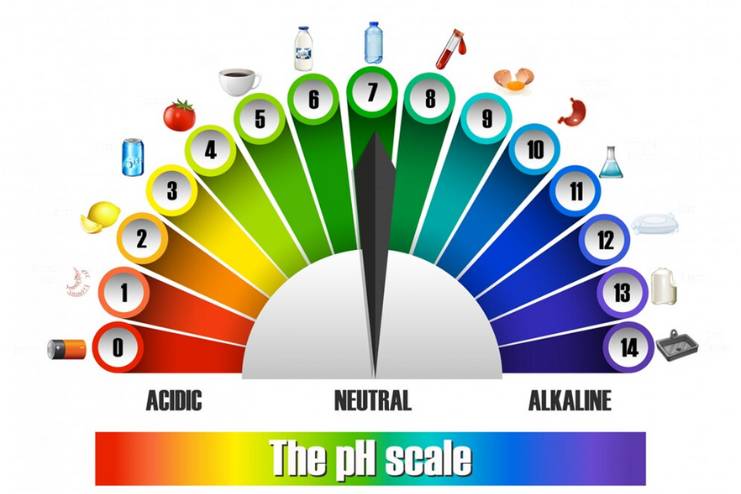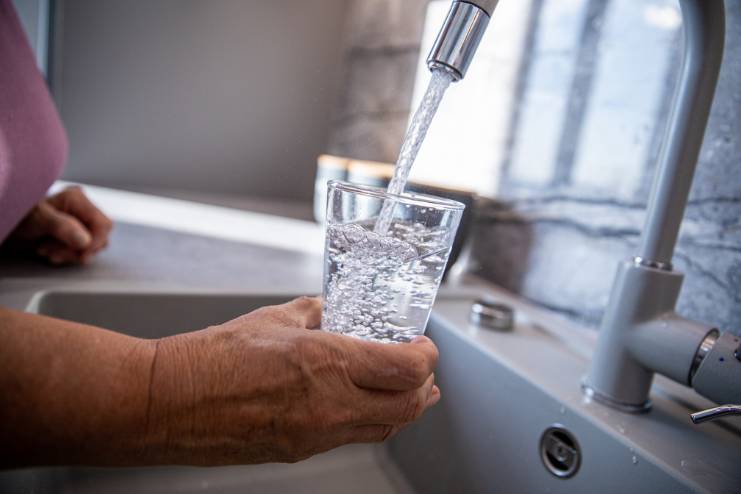AI Contribution
At HealthSpectra, we may use AI to refine grammar and structure, but every piece is shaped, checked, and approved by real people, our expert writers and editors, to ensure clarity, credibility, and care. Learn more..Affiliate Disclaimer
Some links in this article are affiliate links. We may earn a small commission if you make a purchase through these links, at no extra cost to you. We only recommend products we find useful to our readersThe Growing Trend of Alkaline Water
The growing popularity of alkaline water among celebrities and fitness enthusiasts raises an important question: Is it truly beneficial, or is it just a passing trend? To determine which is better—alkaline water or regular water—we need to examine the research and understand the differences between the two.
In this article, we’ll explore the differences between alkaline and regular water, examine the scientific backing of alkaline water’s purported health benefits, and help you decide which water is best for your hydration needs.
What Is Alkaline Water?

Alkaline water has a pH level higher than 7, typically ranging from 8-9. The pH scale measures how acidic or alkaline a substance is, with 7 being neutral. Alkaline water may contain minerals like calcium, magnesium, potassium, and iron, which naturally raise the water’s pH when it passes through rocks and other natural sources.
Natural Vs. Artificial Alkaline Water
It is interesting to know that, unlike regular water, alkaline water can also be naturally derived or made artificially.
- Natural Alkaline Water: As the name suggests, water that passes through rocks, like spring water, is naturally alkaline. This is because it picks up minerals and becomes alkaline. This water is well-balanced and safe to drink.
- Artificial Alkaline Water: When water is treated with a chemical process known as electrolysis or ionization, it becomes alkaline. This is artificial alkaline water. The process helps separate the acidic and alkaline molecules, but the water lacks natural minerals.
What Is Regular Water?

Regular water is the water we commonly source from taps, wells, or bottles. Its neutral pH of 7 perfectly balances alkalinity and acidity, making it an essential source of hydration, accepted universally.
Here’s how regular water benefits our body:
- Hydration and Cellular Function: The human body is made of water, and every cell needs water for maximum functioning. According to the CDC, a lack of proper water intake leads to dehydration, which affects mood, attention spans, and energy levels overall.
- Digestion and Nutrient Absorption: As we all know, water plays a key role in breaking down the food we consume. This helps in optimum nutrient absorption. Water is also important in dissolving minerals and vitamins, which helps in digestion.
- Detoxification: Staying hydrated helps the kidneys function properly, flushing out waste via urine.
Regular water helps maintain overall health, is widely accepted, and is universally available.
Key Differences Between Alkaline and Regular Water
When we discuss alkaline vs. regular water, there are a few contrasts to be noted.
While both hydrate your body, they differ in a few aspects. They essentially differ in pH, mineral content, and cost. Here’s how they compare:
- pH Levels: Alkaline water has a higher pH, between 8-9, while regular water has a neutral pH of 7. While the difference is notable, the body’s natural mechanisms, such as the stomach acids, regulate pH levels and neutralize excess alkalinity.
- Mineral Content: Alkaline water may have artificially added minerals, whereas regular water contains naturally occurring minerals like calcium and magnesium. Both types of water provide essential minerals, but a balanced diet remains the most important source.
- Cost and Accessibility: Alkaline water is often touted as premium, costing around $2–$3 per bottle. However, it requires excessive processing and can be harmful to our environment. Regular water is readily available everywhere and also affordable, making it a cost-effective and sustainable option. All you need to do is properly filter regular water.
Claimed Benefits of Alkaline Water
There are various claims on the benefits of alkaline water. Here are a few:
- Improved Acid Reflux: A few studies suggest that alkaline water with a pH of 8.8 may suppress pepsin, an enzyme responsible for acid reflux. However, more conclusive studies are needed to examine the benefit of alkaline water on acid reflux prevention.
- Enhanced Hydration: Alkaline water advocates claim it offers better hydration because of its small water clusters. However, the National Institutes of Health suggests that you can maintain regular hydration even with regular water.
- Antioxidant Properties: Alkaline water is often marketed as slowing aging by neutralizing free radicals and reducing oxidative stress. Despite these claims, a study published in PubMed shows that there is limited scientific evidence to support these antioxidant properties in everyday use.
It is important to understand that we cannot drastically change the pH levels in blood by diet or alkaline water. Well-functioning kidneys and lungs ensure that the levels remain within a range of 7.35-7.45 for its pH level, which is sufficient.
Though the claims above seem appealing, it is important to note that the evidence is either anecdotal or derived from controlled studies and not from real-life applications.
Scientific Perspective: Are the Claims True?

Both types of water hydrate effectively, but the purported health benefits of alkaline water are not conclusively proven.
Regular water, whether tap or bottled, is an efficient source of optimum hydration. It helps carry essential bodily functions, including digestion and thermoregulation. According to the World Health Organization (WHO), 6 billion people consume regular water and use a safely managed drinking water service.
Despite people’s increased interest in alkaline water, the claims of improved metabolism and hydration are not proven. For most people, regular water remains the safest and most reliable choice.
All you need for good hydration is clean, pure water without any additives. Remember, regular water is simple, safe, and accessible, making it a perfect and practical option for staying hydrated.
Which Water Should You Choose?
The choice of alkaline vs. regular water can be challenging, owing to the recent increase in alkaline water trends. The question remains: Is alkaline water better than regular water, or is the benefit of regular water substantial? Opt for the one that suits and fulfills your personal needs and goals.
- For Everyday Use: Hydration is important, and regular water is the best way to hydrate your body. It is sufficient, easily accessible, provides proper nutrient intake, and aptly supports all functions.
- For Specific Concerns: Apart from regular hydration, your body sometimes has specific needs. These can include a few issues, such as acid reflux or dehydration post-workout. Here’s when you can try alkaline water. However, we do not have sufficient evidence of its long-term benefits.
Conclusion
Alkaline water might seem cool, trendy, and new. However, its benefits do not extend beyond those of regular water. Our body naturally maintains its pH levels without much external help. All you need to do is focus on proper hydration via clean, regular water and a balanced diet.
While you may be tempted to join the alkaline water trend, remember it is not scientifically backed. No proven evidence supports alkaline water’s superiority to regular water. We must also understand that our bodies are naturally capable of balancing pH levels and do not need much external help in this.
Focusing on proper hydration, a well-maintained lifestyle, and a nutritious diet can benefit more than relying solely on alkaline water. Regular water does not add to costs and efficiently supports physiological functions. Additionally, it does not disturb the environment with unnecessary processes like alkaline water, making it an eco-friendly choice. So keep things simple and go for accessible options while nourishing your body and reducing waste.
In this Article






















